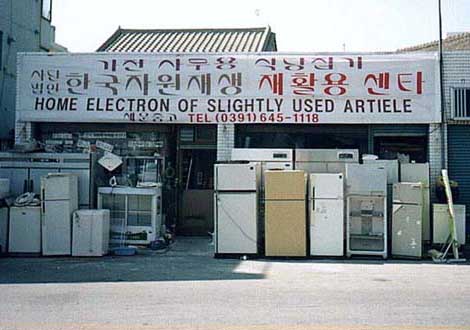

|
At one time you could have called Korea a poor nation, but not any more. Its GDP ranks as the world's
13th largest. (In the early 2000s, it got as high as 11th place, but the enormous growth in Russia's
and India's economies have since shoved it down the ladder a couple of rungs.) This change hasn't been entirely without growing pains. For sure, the swings in Korea's economy are wider than they used to be. There's quite a bit of talk in the goverment about overconsumption, the savings rate is way down, credit card debt and default are up, and the gap between rich and poor keeps widening. Koreans just aren't as frugal as they once were. Our friend Mrs. Lee just shakes her head over the good, serviceable furniture and appliances she sees left for the trash collectors, because the owners are moving or just want something new. In most American cities, they wouldn't stay there long - someone would come along and trash-pick them. That still doesn't happen much in Korea. Quite a few Koreans - especially the older ones - still hear echoes of their ancient Shamanic religions. They have a vague, uncomfortable idea that using someone else's stuff will bring them the former owner's luck - good or bad. This notion may be the reason that theft is less of a problem in Korea. It's almost certainly the reason that stores like this one don't seem too common. But maybe the fact that Margaret found this one on a little Kangnung (Gangneung) side street in 2000 says something about the growing Western-style stresses on Korea's middle class. I suspect that poor Koreans are more aware of what they don't have than they used to be, and thus might be more willing to accept rich folks' castoffs. By the way, we wandered by in 2006, and this used appliance store was still there. Good thing Margaret snapped the pic in 2000, though, because in 2006 the Konglish sign was gone.
|